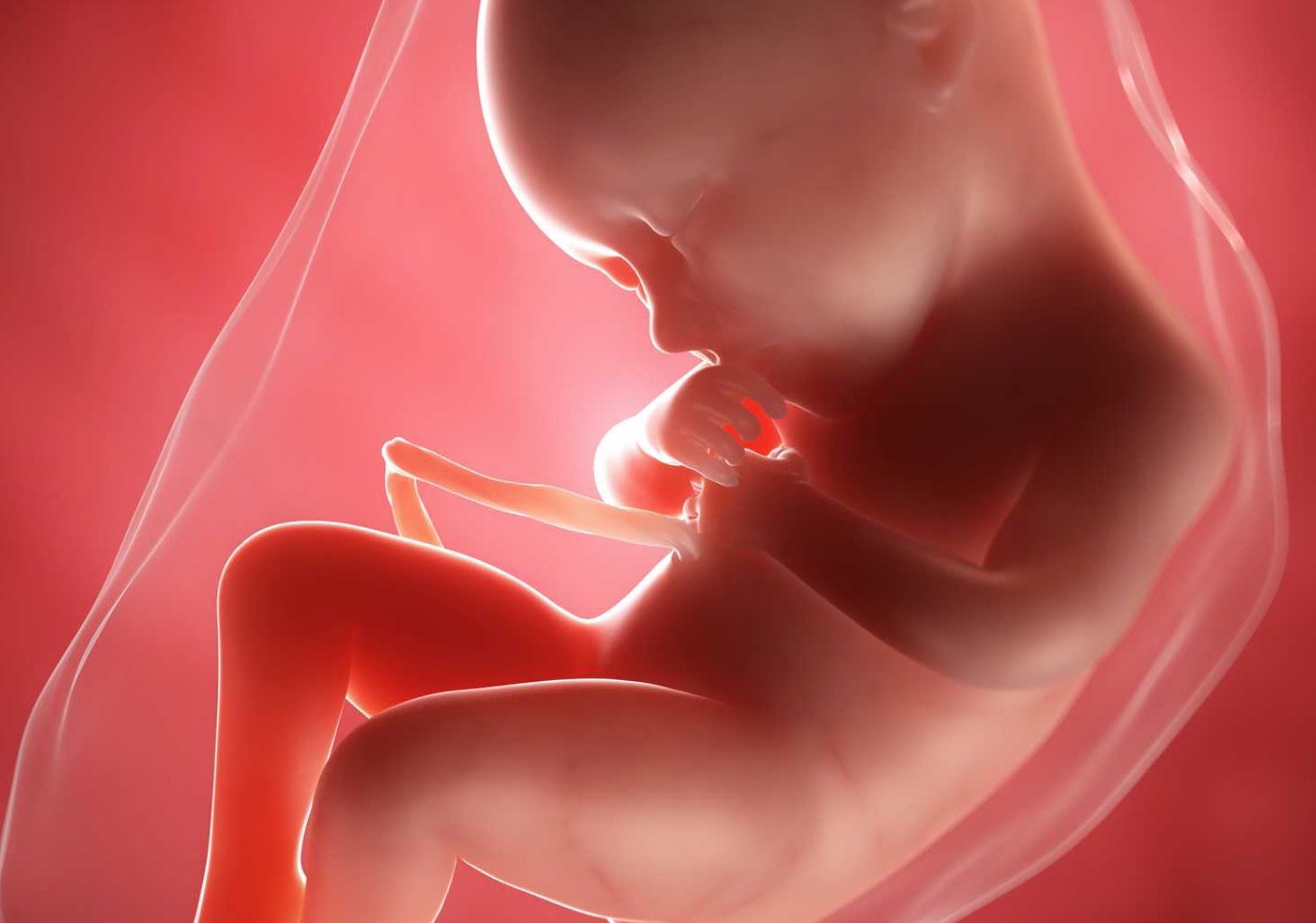
Article originally published in Human Life International: https://www.hli.org/ on August 4th 2021
Do some products contain parts of aborted babies?
The short answer is: “Yes.”
However, today’s consumer products are not the soap and lampshades of “recycled” Nazi concentration camp victims that we see in museums. The new utilitarian use of “people as product” is a sophisticated enterprise that is not visible to the human eye.
Perhaps you are a diligent supporter and promoter of pro-life legislation, only vote for pro-life candidates, and avoid entertainment produced by musicians and actors who openly support Planned Parenthood. However, regardless of how strongly you support life, you may unknowingly be cooperating in aborted fetal cell research by purchasing products that use aborted babies either in the product itself or in its development.
Perhaps you take Enbrel (Amgen) to relieve your rheumatoid arthritis. Maybe someone you know was prescribed Zoastavax, a shingles vaccine, at an annual physical. It may be that your mother suffers from diabetes and renal failure and obtains relief from Arensep (Amgen). Perhaps your grandfather was administered the blood product Repro during an angioplasty. Many school districts require that your children receive the MMRII (the Merck Measles-Mumps-Rubella vaccine). Your children might enjoy using coffee creamers and eat soup with artificial flavor enhancers (Senomyx and Firmenich) tested on artificial taste buds engineered from aborted fetal cells.
Because of the complexities of Food and Drug Administration (FDA) labeling, you would probably not know that these products use aborted fetal parts unless someone informed you.
Fortunately, we have such a watchdog group — Children of God for Life (COG), a pro-life public citizen group which tracks the use of aborted fetal parts. Debi Vinnedge is COG’s Executive Director, and the group publishes a frequently updated downloadable list of products that use aborted babies in their testing or production.
Types of Products That Use Aborted Babies
Products related to fetal material can be broken down into three categories: artificial flavors, cosmetics, and medicines/vaccines.
Food and Drink
 PIN IT
PIN ITFood and beverages do not contain any aborted fetal material but may be tastier because of the nature of the research done in their development.
For example, the American biotech company Senomyx has developed chemical additives that can enhance flavor and smell. To do this, they had to produce an army of never-tiring taste testers — that is, flavor receptors engineered from human embryonic kidney cells (HEK-293, a fetal kidney cell line popular in pharmaceutical research).1 These artificial taste buds can tell developers which products are desirable to the public. Their goal is to produce low-sugar and low-sodium products that taste sweet or salty while actually using less sugar or sodium in the product.
Does your Nestle Coffee-mate Pumpkin Spice creamer taste more like autumn? Does your Maggi bouillon taste just like chicken?
Thank Senomyx.
The laboratory-created artificial enhancers do not have to be tested at length by the FDA because the Senomyx chemical “flavor compounds are used in proportions less than one part per million” and can be classified as artificial flavors.2
In 2005, Senomyx had contracts to develop products for Kraft Foods, Nestle, Campbell Soup and Coca-Cola.3 However, pro-lifers boycotted PepsiCo when they discovered that it was cooperating with Senomyx to develop a reduced sugar beverage. This boycott caused Kraft-Cadbury Adams LLC and Campbell Soup to cancel their contracts with Senomyx.
In a 2012 letter to Children of God for Life, PepsiCo stated that “Senomyx does not use HEK cells or any other tissues or cell lines derived from human embryos or babies for research performed on behalf of PepsiCo.” However, the corporation is now working with Senomyx on two products developed with Sweetmyx 617, a new Senomyx sweet taste modifier.
Cosmetics
The fountain of youth appears to be…babies.
Commercially, it’s known as processed skin proteins (PSP), developed at the University of Lausanne to heal burns and wounds by regenerating traumatized skin. The fetal skin cell line that PSPs are based on was taken from an electively aborted baby whose body was donated to the University.
Neocutis, a San Francisco-based firm, uses PSP in some of their anti-aging skin products. Its website claims that the trademarked PSP “harnesses the power of Human Growth Factors, Interleukins and other Cytokines, to help deliver state-of-the-art skin revitalization.”
Vaccines and Medications
The Vaccine Chart of the Sound Choice Pharmaceutical Institute (SCPI) lists dozens of vaccines and medical products that contain aborted fetal cell lines. This chart also lists ethical vaccine alternatives when they are available. The morality of using these vaccines developed from fetal cell lines is a complicated issue, though there are ethical guidelines available.
SCPI is a biomedical research organization headed by Theresa Deisher, who holds a PhD in Molecular and Cellular Physiology from Stanford and has registered 23 patents in the field. Deisher, the first person to identify and patent stem cells from the adult heart, has an insider’s understanding of genetic engineering, having worked for industry leaders such as Amgen, Genetech, and Repligen.4
SCPI “promotes awareness about the widespread use of fetal human material in drug discovery, development and commercialization.” It reveals that no vaccine product is completely pure: “You will find contaminating DNA and cellular debris from the production cell in your final product. When we switch from using animal cells to using human cells we now have human DNA in our vaccines and our drugs.”5
The problem is three-fold:
Aborted baby parts are used for experiments
Cell lines based on aborted babies are used in the production of various products
There is fetal cellular DNA debris in vaccines and medications.
 PIN IT
PIN ITThe Fetal Tissue Marketplace
Much research is currently being done with fetal cells. We can deduce this because there is a lucrative market for the parts of unborn babies.
In a series of undercover videos, David Daleiden’s Center for Medical Progress exposed Planned Parenthood abortion clinics selling aborted unborn baby parts to investigators posing as medical researchers.
The harvesting of organs from aborted unborn babies has been going on for years. Dr. Theresa Deisher first became aware of the use of aborted babies in drug research in 1996. Fresh aborted babies are abundant and are a time-saver compared to the days spent obtaining and preparing animal tissue for laboratory experiments.
Much more recently, in 2018, professor emeritus Dr. Stanley Plotkin, lead developer of the Rubella vaccine for the Wistar Institute in the 1960s, was deposed as an expert witness on Vaccinology in a Michigan child custody case. One particularly interesting series of questions regarded the number of aborted babes Plotkin has used in his experiments:
Question: “So this study involved 74 fetuses, correct?”
Plotkin: “Seventy-six.”
Question: “And these fetuses were all three months or older when aborted, correct?”
Plotkin: “Yes.”6
All cells (including those harvested from aborted babies) have a finite capacity to replicate due to cellular aging. This vaccine trial thus required many cell lines in order to achieve its end.
A Better Option: Adult Stem Cells
Dr. David Vice is Adjunct Professor of Molecular Genetics at the John Paul II Institute and President of the Charlotte Lozier Institute. According to him, adult stem cells are the new “gold standard” for research and, unlike fetal stem cells, have led to actual cures. He says that “The superiority of adult stem cells in the clinic and the mounting evidence supporting their effectiveness in regeneration and repair make adult stem cells the gold standard of stem cells for patients.”
We should then ask why we are still using embryonic cell lines when adult stem cells have become the Gold Standard. There seems to be little excuse to use aborted babies in order to produce a product line.
U.S. Policy on Products That Use Aborted Babies
On the 20th Anniversary of Roe v. Wade in 1993, President Bill Clinton signed five abortion-related memoranda, one of which reversed the George H. W. Bush-era moratorium on creating new fetal tissue for research. Clinton claimed, “This moratorium has significantly hampered the development of possible treatments for individuals afflicted with serious diseases and disorders, such as Parkinson’s disease, Alzheimer’s disease, diabetes and leukemia.”
In 2006, there was a major debate among bioethicists as to whether or not the United States would allow the use of new lines of aborted fetal stem cells in research. The medical research community had already decided that the future lay with human-animal hybrids and new aborted fetal cell lines.
According to a statement submitted to the President’s Bioethics Council:
Aborted human DNA in our vaccines is not the end, it is only the beginning, as the creation of human-animal hybrids demonstrates. A new aborted fetal cell line has been developed, called PerC6, and licenses have been taken by over 50 partners, including the NIH and the Walter Reed Army Institute, to use this cell line for new vaccine and biologics production. The goal of the company that created the PerC6 is to become the production cell line for ALL vaccines, therapeutics antibodies, biologic drugs and gene therapy.
In 2019, the United States Department of Health and Human Services (HHS) granted a second 90-day extension to a contract it has with the University of California at San Francisco that requires UCSF to make “humanized mice” for ongoing AIDS research. The human fetal tissue comes from late-term abortions.
CNSNews reported, “according to an estimate it has published on its website, the National Institutes of Health (which is a division of HHS) will spend $95 million this fiscal year alone on research that — like UCSF’s “humanized mouse” contract — uses human fetal tissue.”
Read about how the Trump administration limited the sale of fetal parts.
Conclusion
The Bible tells us that “the love of money is the root of all evil” (1 Tim 6:10). Nowhere is this more evident as in the example of the growing industry involving the use of aborted unborn children. Research and development continues into products ranging from various cosmetics to cures for various diseases (none of which have borne fruit). This gruesome trade in human bodies will only continue until enough people stand up and oppose it effectively.
Subscribe now for updates from Msingi Afrika Magazine!
Receive notifications about new issues, products and offers.






















